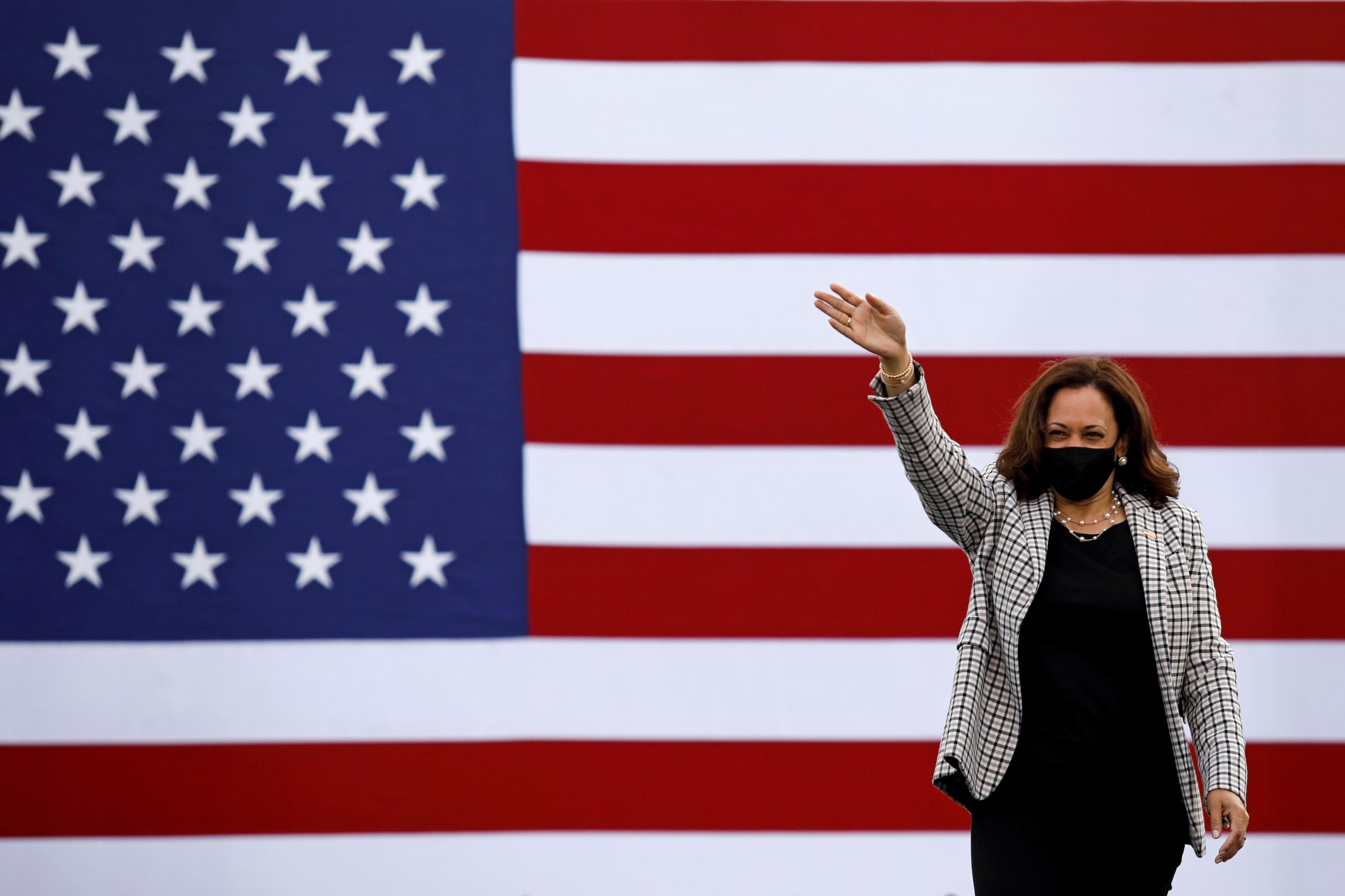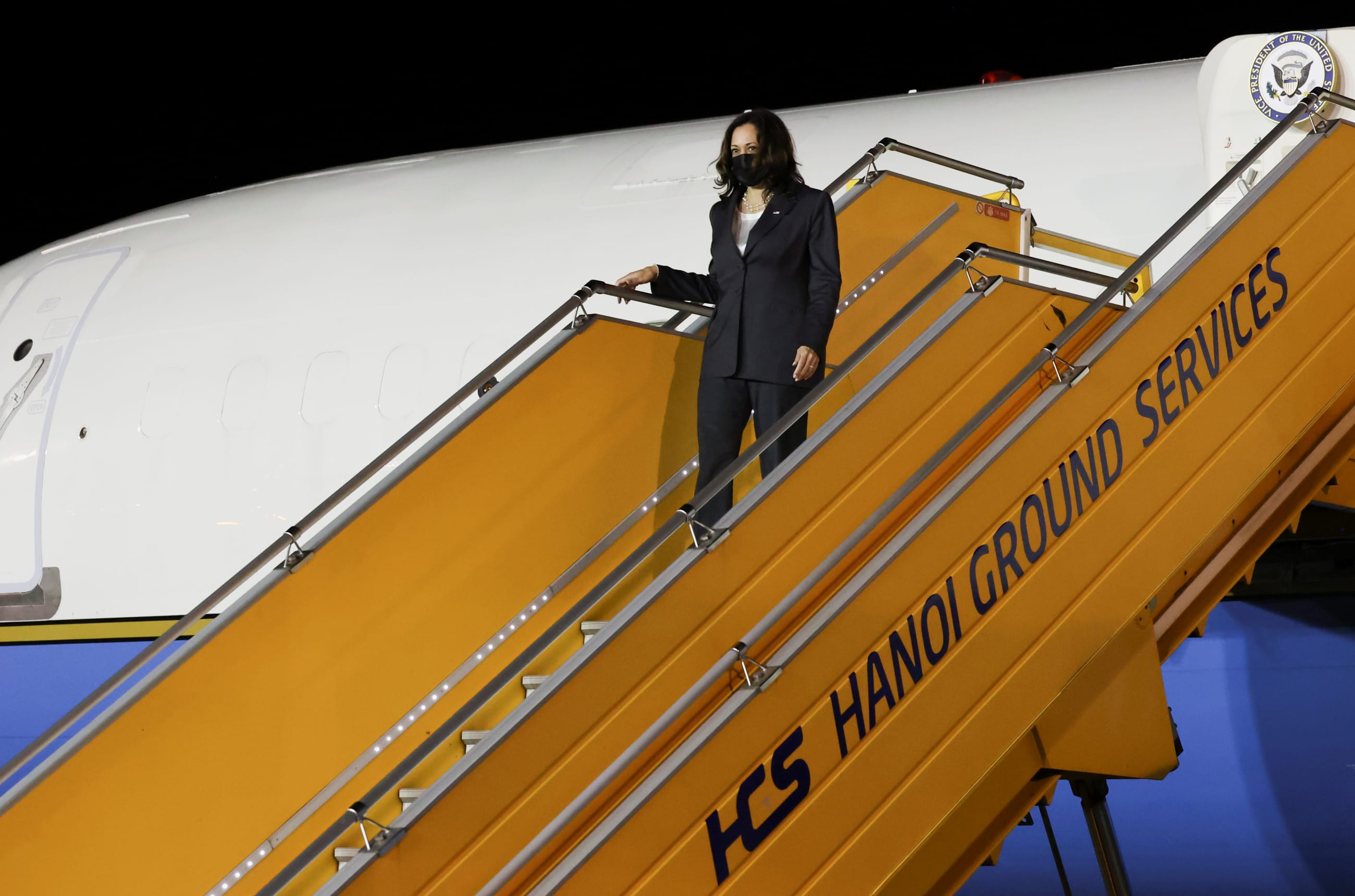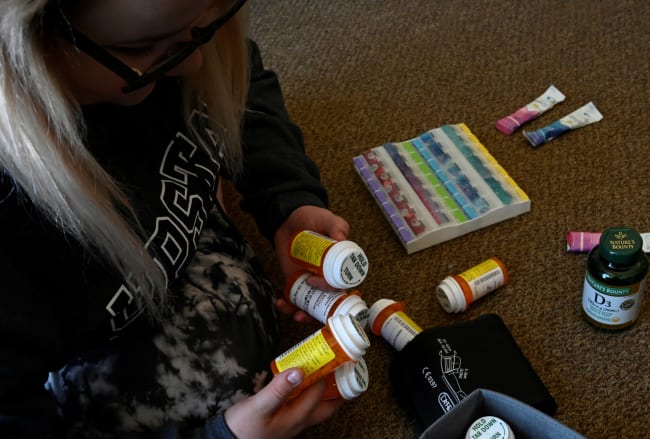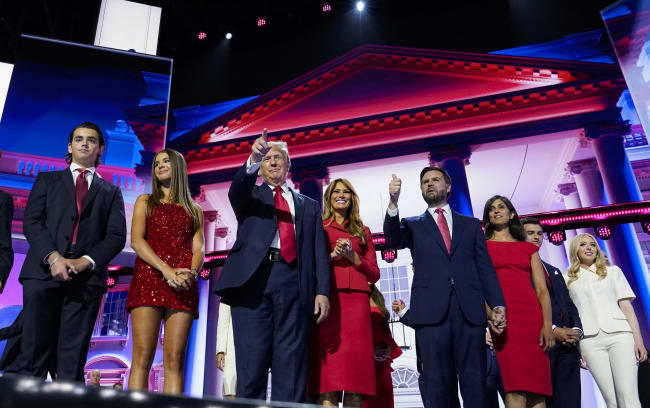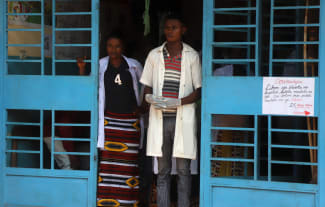A month after President Joe Biden declined to run for reelection, Vice President Kamala Harris is beginning to unveil her policy platform as she heads into the Democratic National Convention next week to formally accept her party's nomination.
On health care, Harris has focused primarily on domestic issues. Recent campaign rallies and ads have emphasized her role in the Biden administration as a strong supporter of abortion access as well as her party's commitment to protecting the Affordable Care Act. Experiences from her public service career as California's attorney general and a U.S. senator, along with statements made during her brief 2020 presidential campaign, have fueled some media speculation that Harris's domestic health policy agenda could be more progressive than Biden's.
Serving as vice president to Biden—who drew from a long career as a statesman and tenure on the Senate Foreign Relations Committee and whose presidency has been shaped by Middle East conflict and a global pandemic—presented Harris an opportunity to expand her foreign policy experience. A clear sense of how Harris would approach global health and foreign aid, however, has yet to materialize.
Although profiles of her candidacy have tied where she stands on global health to the Biden-Harris administration's list of accomplishments, her record of involvement as vice president in those initiatives is more limited. Two related issues that have begun to define her campaign, the Israel-Gaza War and immigration at the southern border, could also shape her administration's priorities for global health and foreign aid.
Record in the Biden-Harris Administration
Starting his presidency during the height of the COVID-19 pandemic placed Biden within a politically charged global health environment. Tasked with the federal response and having campaigned against President Donald Trump's handling of the pandemic, the Biden-Harris administration elevated a number of global health initiatives aimed at boosting pandemic preparedness, biodefense, and reasserting American leadership and cooperation on global health.
Harris led the announcement that the United States would support and contribute $250 million to the new global health fund
Although this joint record with Biden provides Harris with a string of global health achievements, her individual record of involvement on global health and foreign aid still seems fresh, based on activities over the past four years of the administration.
In the early days of the Biden administration, Harris was reportedly interested in prioritizing global health as part of a broader effort to build out a foreign policy portfolio. According to people in the White House familiar with the matter, potential areas of focus included—along with supporting the administration's COVID-19 response—maternal health and mortality (domestic legislation for which Harris had worked on as a senator), children's health, and food and water insecurity.
In 2021, Harris received attention for two COVID-related global health decisions announced by Biden: his administration's reversal of President Trump's withdrawal from the World Health Organization and the United States' investment into a new World Bank global fund to prepare for future pandemics.
Harris called WHO Director General Tedros Adhanom Ghebreyesus on the phone to deliver the news as one of the administration's first post-inauguration decisions. The call's readout states that the "Vice President emphasized that she and President Biden believe the WHO is vital to controlling COVID-19 and building back better our global health and pandemic preparedness." Later that year, at the UN General Assembly in September, Harris led the announcement that the United States would support and contribute $250 million to the new global health fund, what would become the Pandemic Fund, with an initial goal to raise $10 billion on surveillance and the development of countermeasures.
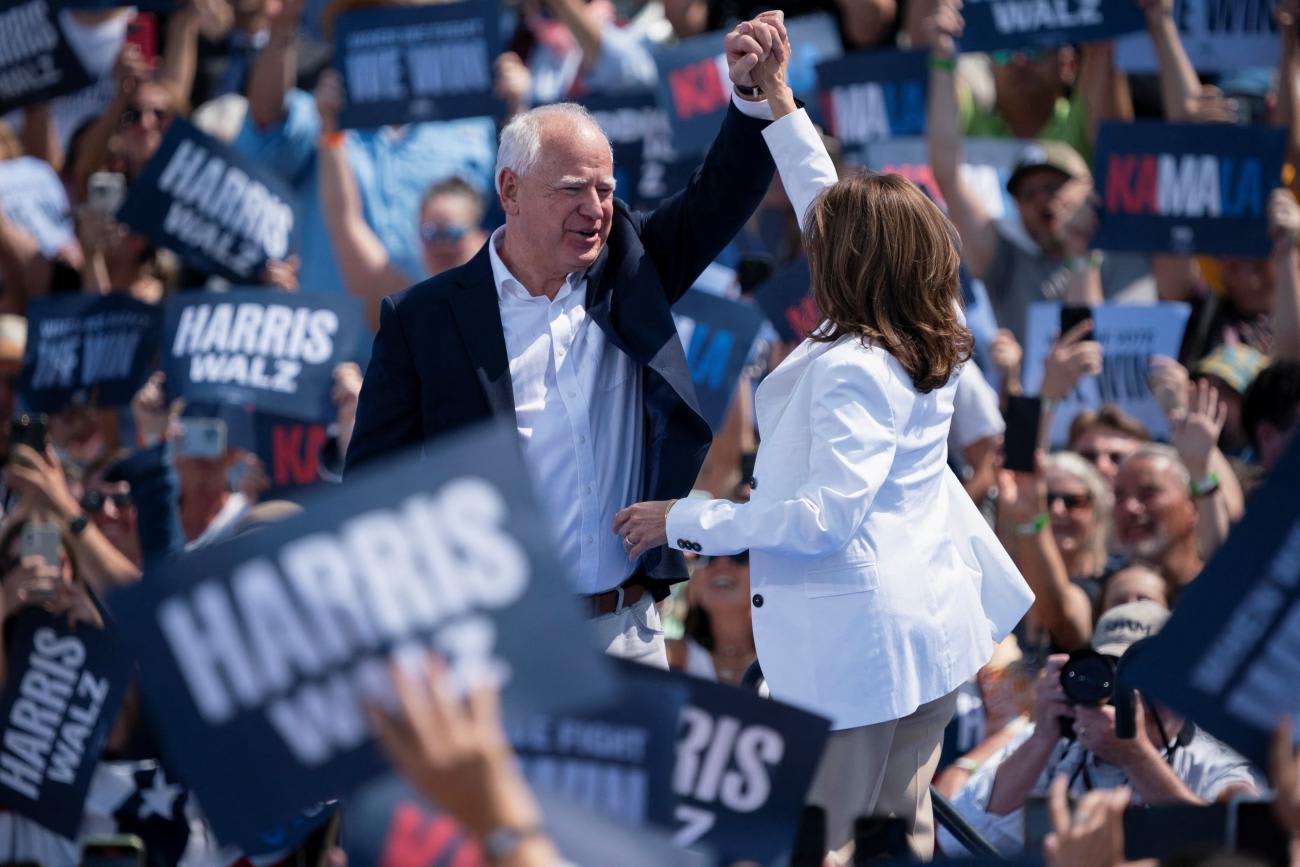
White House public statements indicate that beyond the first year of her vice presidency, Harris appears less involved with other pandemic preparedness initiatives, and her global health and foreign aid announcements were more occasional. Those efforts include a 2024 blueprint initiative on tackling the maternal health crisis at home and a $1 billion investment drive for private sector and U.S. government interests in Africa after her participation in the U.S. Africa Leaders' Summit. The latter raised funds to empower women's economic inclusion efforts, such as investing in women small business owners and community health workers. In 2023, she declared similar investments into private and public projects to promote climate resilience and adaptation, including $7 billion for Africa and more than $100 million in the Caribbean.
In 2023, playing on her legal experience, Harris convened a meeting with state attorneys general to discuss the illicit trafficking of fentanyl as a public health crisis that followed the administration's release of a National Response Plan to coordinate a "whole-of-government response" against the drug. Her campaign has begun to elevate her experience targeting transnational drug trafficking and opioids as a key political stance.
On Immigration
Harris's most-discussed role as vice president is her work on immigration, tasked by Biden in 2021 to address the systemic causes of growing migration at the southern border. Although her public-facing commitments and appearances on immigration were limited to a few months, particularly because the topic became seen as a source of her unpopularity as migrant border encounters spiked that year, Harris's charge was more than ceremonial. Leading the Root Causes Strategy, she leveraged private sector and U.S. government investments in Central America to address the issue long term.
Private-public investments, could become part of her administration's long-term foreign aid priorities
The initial agreement launched in 2021 committed $4 billion through the U.S. Agency for International Development (USAID) and the Mexican Agency for International Development Cooperation to Central America, and Harris has since worked to direct more than $5 billion through leading Central America Forward (CAF), a public-private partnership working with companies such as Nestle and Target, in El Salvador, Guatemala, Honduras, and Mexico to fund projects in the Northern Triangle region. Highlighted investments in the region have focused on workforce training and development, along with promoting health care, women's economic security, climate adaptation, and affordable housing.
In recent weeks, drawing on her experience as California attorney general, Harris has developed a tough campaign stance on border security in speeches and new ads. The messaging has been packaged as tackling "transnational gangs," "human traffickers," and cross-border crime in response to a Republican assault on her record as so-called "border czar" and her lagging approval ratings on the salient issue of border security in this election. One campaign ad for Harris attacks Trump for blocking funding for fentanyl control, border security technology, and human trafficking interventions.
Her multiyear involvement in the Root Causes Strategy offers clues to how her administration, through private-public investments, could become part of her administration's long-term foreign aid priorities. How these priorities could be packaged as part of an immigration policy with her campaign's targeted focus on investing in border control and addressing fentanyl trafficking remains a question.
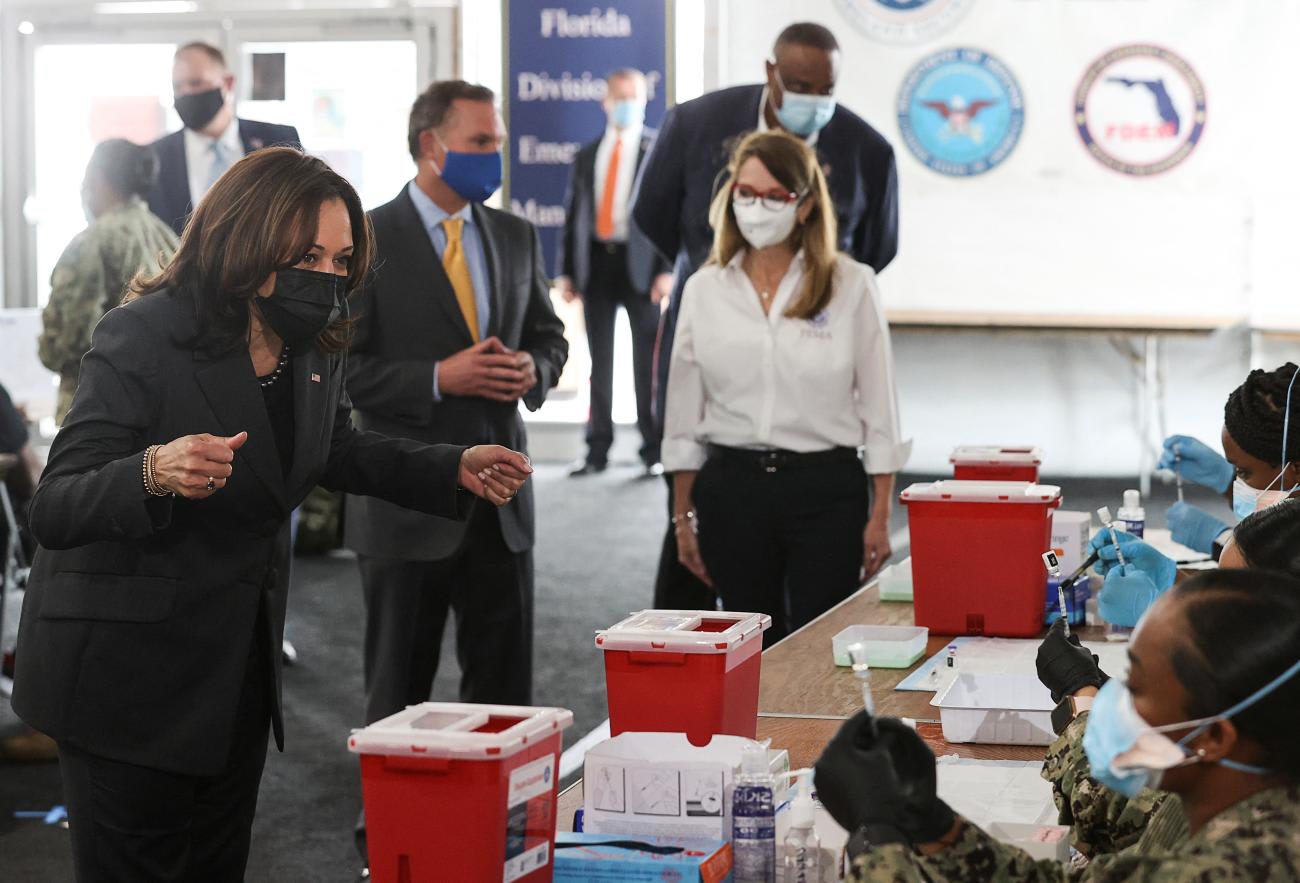
On Gaza's Humanitarian Crisis
Less than one week after announcing her presidential campaign and receiving the endorsement of major Democratic Party leaders, Harris made headlines for striking a sharper tone than Biden on what she called the "humanitarian catastrophe" in the Gaza Strip during her remarks after meeting with Israeli Prime Minister Benjamin Netanyahu.
Although her campaign has signaled that she does not support an embargo on arms sales to Israel, Harris's language in describing the humanitarian situation in Gaza has been perceived to be stronger than Biden's, who faced criticism for his self-declared "ironclad support" for Israel amid growing concerns from aid organizations about potential violations of international humanitarian law. Under the UN-backed Integrated Food Security Phase Classification, Gaza is at high risk of famine, and the occupied territory's Ministry of Health casualty count stood at 39,897 Palestinian deaths as of August 12. The WHO reported in early August that 16 of 36 hospitals in Gaza were functioning, as the operation in Rafah cuts off medical supplies into the enclave.
With fewer than 100 days until the U.S presidential election, the Harris campaign has not supplemented her perceived shift in posture with an explicit shift in policy. She has yet to publicly discuss how she would approach humanitarian aid, a day-after humanitarian plan, or relationship with Israel as president.
Yet onlookers perceive her series of comments—recently describing the situation in Gaza "dire" and affirming that "we cannot allow ourselves to be numb to the suffering," calling for a ceasefire back in March, and imploring Israel's war cabinet to increase aid flow in Gaza, a month before Biden did the same—as a potential sign of a shift in policy, which is winning increasing support from some Arab American voters.
Looking Ahead
Although her record and emerging policy postures on immigration and the humanitarian crisis in Gaza may offer signs to her potential administration's priorities, Harris's platform on global health and foreign aid remains mostly a black box. As her policy agenda develops in the weeks ahead, it will be seen whether and how she highlights positions on global health and foreign aid in contrast to President Trump, as does what she could take credit for within the Biden-Harris administration.
Think Global Health contacted the Office of the Vice President and Democratic National Committee for comment but did not receive a reply.
